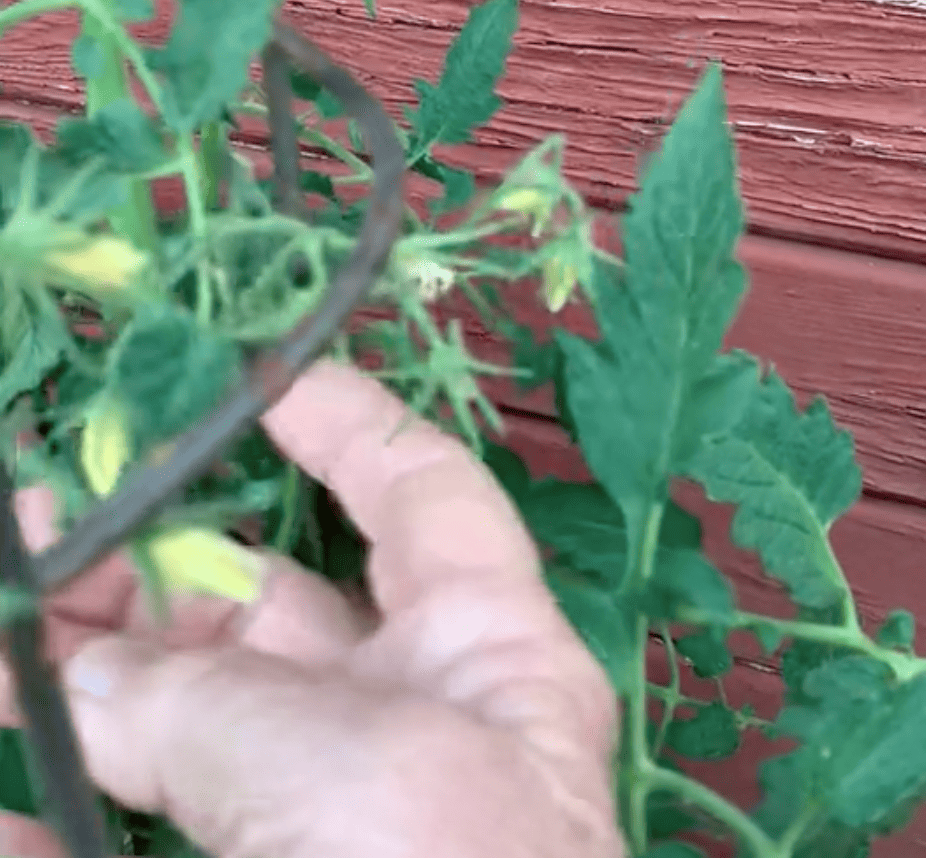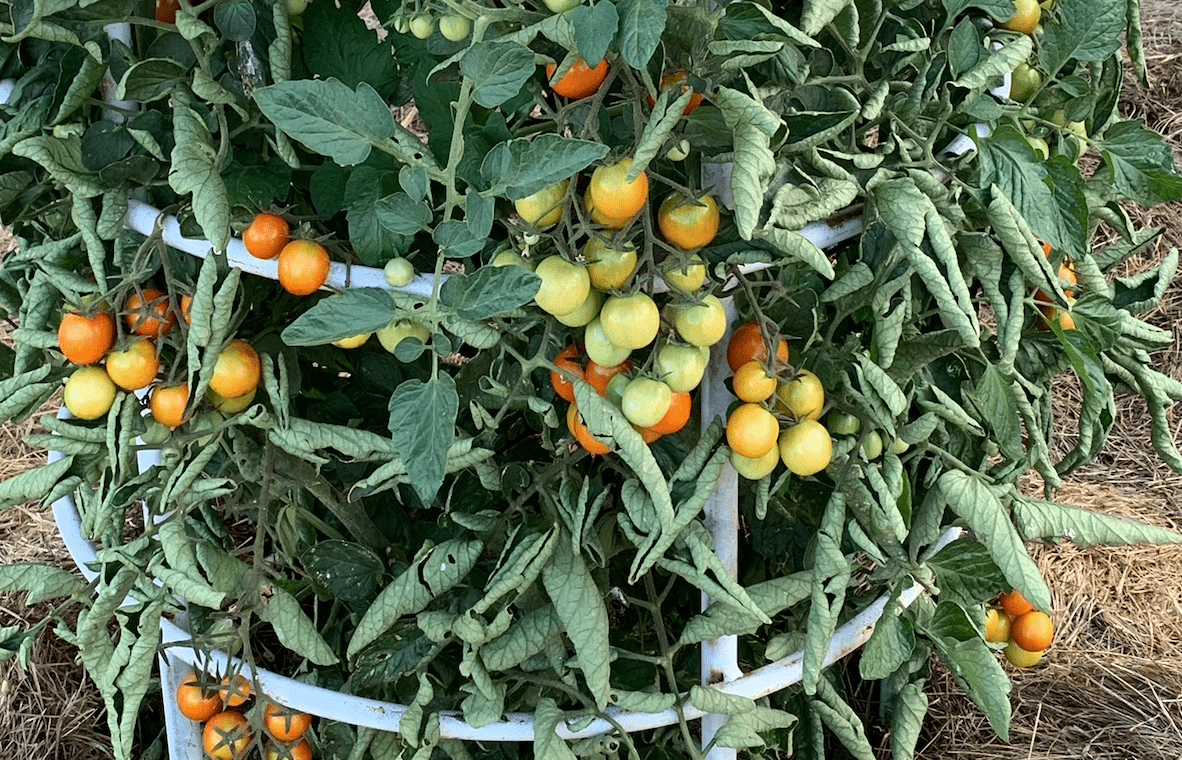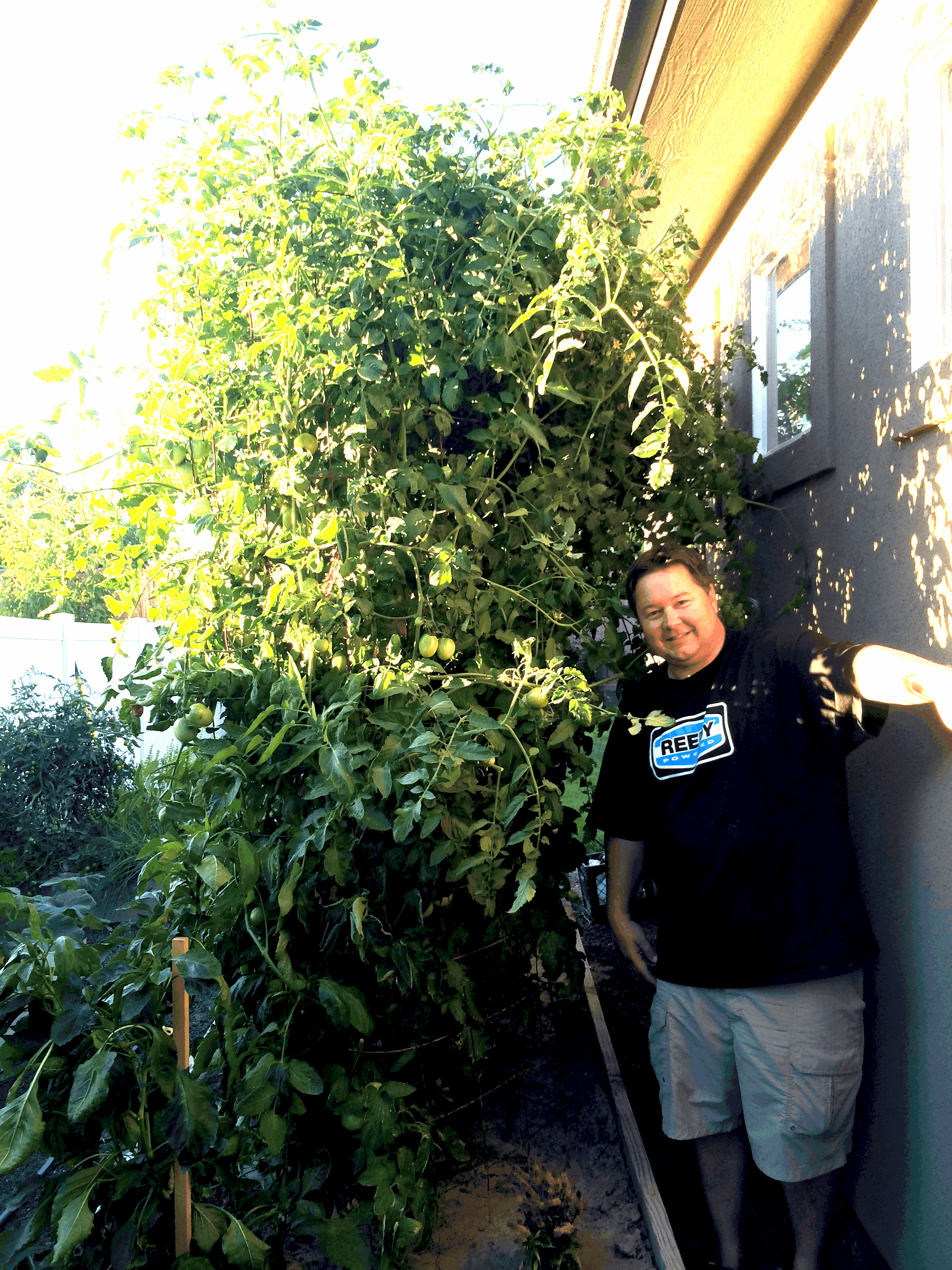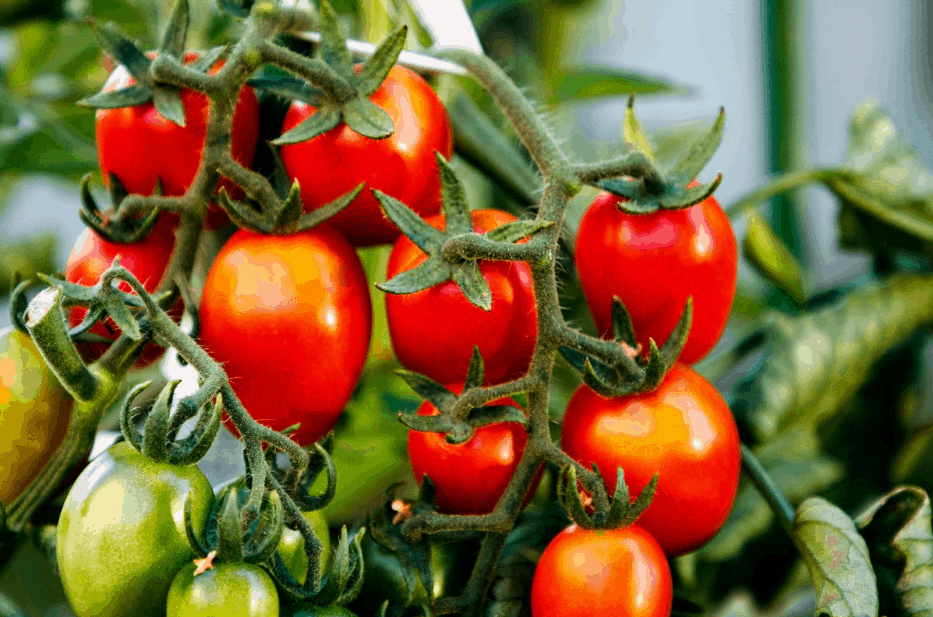Tomatoes are some of the most popular plants that are grown in home gardens today. You will get the best tomatoes if you have high quality soil and provide added nutrients in the form of fertilizer. Tomatoes are considered “heavy feeders,” meaning they quickly use and remove a lot of nutrients from the soil, which then need to be replaced. If these nutrients are not replenished, you will likely get a poor tomato crop.
Important Nutrients for Tomatoes
To understand fertilizer requirements, it is helpful to understand what plants need to grow. Plant growth is based on a combination of energy from the sun and nutrients from the soil. Fertilizer is just a way to help add to these nutrients. Some of the most important nutrient requirements for tomatoes are:
- Nitrogen- Helps with the synthesis of proteins; Nourishes the leaves and foliage
- Phosphorus- Important for cellular division and energy transfer; Critical during fruiting and improves yield and quality
- Potassium- Aids in the transport of sugar; Essential for a healthy root system
- Calcium- Important for building cell walls; Helps prevent blossom end rot and aids in fruit firmness
- Magnesium- Part of chlorophyll production and the transfer of energy
- Sulfur- Synthesizes amino acids and aids in chlorophyll formation
- Manganese- Essential part of photosynthesis
- Boron- Contributes to cell wall formation and the movement of sugars
- Copper- Helps to metabolize carbohydrates and nitrogen
- Molybdenum- Critical for reducing nitrates; helps the production of proteins
- Iron- Helps reduce nitrates and sulfates; Aids in chlorophyll formation
- Zinc- Important for chloroplast development and growth regulators
As you can see, healthy soil and plants require a lot of nutrients. There are two main types of fertilizers to help meet these needs, synthetic and natural.
Synthetic Fertilizers
Synthetic fertilizers supply chemical forms of the most important macronutrients, nitrogen, phosphorus, and potassium (referred to as N-P-K). There are many different ratios of N-P-K that companies sell based on what specific plants need at different times of the year.
An example of a basic, balanced fertilizer may be 10-10-10. These numbers indicate the percentage that the product contains based on volume. A 10-10-10 fertilizer would contain 10% nitrogen (N), 10% phosphorus (P), and 10% potassium (K). Fertilizers that are aiming to increase foliage, like for use on lawns, will be higher in nitrogen (example: 12-0-10). Those fertilizers that are specifically for fruiting and root growth would be lower in nitrogen and higher in phosphorus and potassium (example: 5-10-10).
It is important to note that most commercially available synthetic fertilizers do not contain any micronutrients, so the soil will have to provide those or the plants will suffer. Synthetic fertilizers give quick nutrients to plants, but do nothing to build up the soil. Use of synthetic fertilizers can actually hurt the soil in the long run by making it too acidic or salty. They can also cause fertilizer burn on your plants if not applied correctly.
Natural Fertilizers
Natural fertilizers also have varying ratios of N-P-K, but they also provide many of the micronutrients that synthetic ones ignore. They achieve this through the use of natural materials like egg shells, bone meal, kelp, alfalfa meal, epsom salts, compost, manure, and more.
Each of these ingredients helps to supply one or more of the essential nutrients that plants need. For example, rabbit manure supplies nitrogen, epsom salts add magnesium and sulfur, and eggshells are an excellent source of calcium. Gardeners can supply each of these ingredients on their own or choose to purchase a complete natural fertilizer that contains the necessary ingredients already mixed together.
Natural fertilizers not only feed the plants, but they also feed the microbes in the soil. Microbes are important because they will break down the organic matter, and in the process, release even more nutrients. This process happens over time, so natural fertilizers provide consistent, long-term supplies of all the macro and micronutrients that plants need.
The Best Tomato Fertilizer
When choosing a tomato fertilizer, we recommend using a natural one that contains all of the nutritional requirements mentioned above. Tomato Secret is the best tomato fertilizer on the market. It is biologically correct, great for your soil, and will produce healthy, disease and pest-resistant tomatoes that will look and taste better than the competition.
Dr. JimZ Tomato Secret is the culmination of 5 generations of successful tomato growers. Our products are safe for humans and animals, and we guarantee your complete satisfaction. Now that you know the secret, take advantage of it by ordering your Tomato Secret today.
Photo Credit:
https://pixabay.com/photos/tomatoes-vegetables-garden-sheets-4646329/



